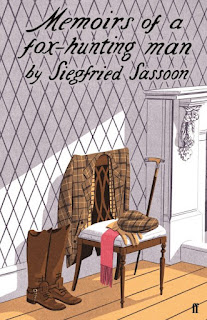Elders and Youngers
Often, both our worldviews and
personal politics contradict our elders. The nineteenth-century Russian writer,
Ivan Turgenev, felt this was a problem worth discussing, and his most famous
novel, Fathers and Sons (1862), places inter-generational
conflict at the very centre of its narrative.
In the beginning, Bazarov, a youthful medicine student and hard-line nihilist, contends with his best friend’s uncle,
Pavel Petrovich, on his systems of belief. Petrovich interrogates Bazarov at
dinner and criticises his nihilistic outlook. Across the table, Bazarov bravely
bites back at the retired military general. ‘In the first place,’ he clarifies,
‘we preach nothing’ (58). ‘We come to see that our so-called progressives and
denouncers are good for nothing, that we’re spending our time on nonsense . . .
when what’s at stake is people’s daily bread’ (59). Fathers and Sons is
set during a time of sweeping social-political change in nineteenth-century Russia.
The 1850s led to up to the momentous Emancipation of the Serfs in February
1861, changing Russia’s social landscape forever. As an ardent traditionalist (a
‘grand seigneur’), Petrovich explodes at Bazarov’s radicalism and, to no
avail, seeks to impose his value system onto his youngers. Both characters
represent the conflict between the old world and the new; tradition and
innovation.
In an inevitable clash of egos, Petrovich
challenges Bazarov to a duel. Bazarov expresses contempt at Petrovich’s ‘chivalrous’
behaviour – nevertheless, he accepts. Suddenly, Petrovich loses. Bazarov rushes
for help. Petrovich survives and retires to his bed, where he makes a slow recovery but suffers
a damaged reputation. Soon Bazarov leaves the Petrovich household, and his
heart boils with scorn. The mansion appears to him for the last time. He spits
and mutters “Bloody gents!” and escapes the stranglehold of his predecessor’s
ways (190).
Bazarov breaks the news to Petrovich’s
nephew, Arkady. He admits responsibility for the uncle’s injury, but justifies
his actions through a well-rehearsed argument. ‘[T]hat’s what comes of living
with feudal barons. You become one yourself and take your part in knightly
tournaments’ (203). Bazarov’s rhetoric further establishes his disdain for the world
behind him. The whole affair – its human cost – exacerbates his contempt for Russia’s
traditions. He wants to divide himself from the ways of his predecessors, comparing
their ways to medieval customs. To him, their generation are nothing more than
dinosaurs: ancient history.
With a title like Fathers and Sons,
Turgenev deceives his reader: this story is also about Bazarov’s mother. In
addition to his poor relations with the families of others, Bazarov antagonises
his direct family too. When he returns home, his father warns his wife ‘not to “bother”
him too much. “Young men don’t like it”’ (157). Turgenev gives an outline of
her character.
Arina Vlasyevna was a true
Russian gentlewoman of olden time. She should have lived two hundred years before,
in the days of old Muscovy. She was extremely devout and sensitive, believed in
all kinds of portents, fortune-telling, spells and dreams. (141)
Both her motherly sentimentality and
folk beliefs get in the way of Bazarov’s worldview. As a result, she irritates
him; he disowns her.
Once again, elders and youngers fail
to see eye to eye, and the mistaken love of a mother adds an extra dimension to
Turgenev’s story. Inter-generational conflict extends beyond personal politics
and eventually invades issues of love and tenderness. This is the eternal truth
to Turgenev’s fiction – simply, that the old and the young will inevitably disagree.
Source:
Fathers
and Sons. By Ivan Turgenev
(trans. by Peter Carson). London: Penguin Random House, 2016.
978-0-241-26197-2.



Comments
Post a Comment